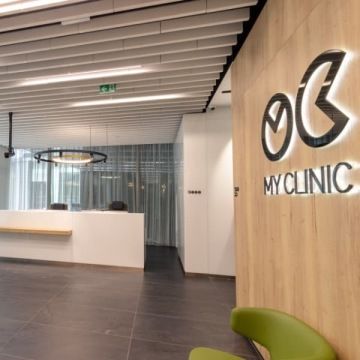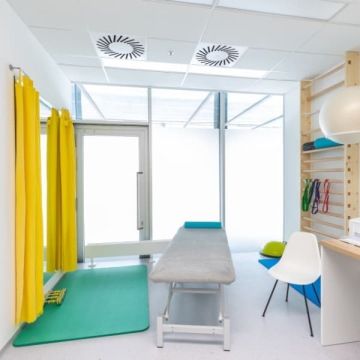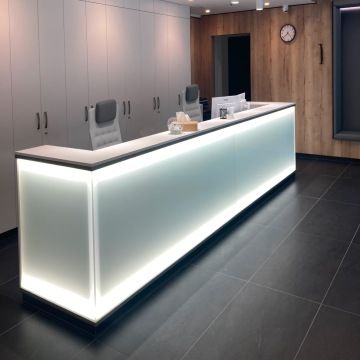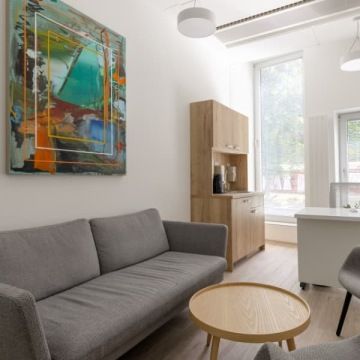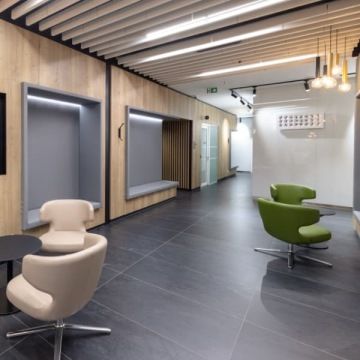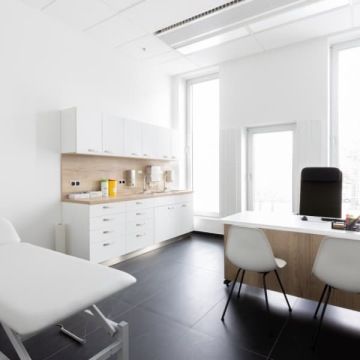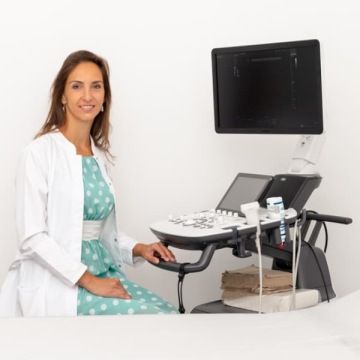Abdominal hernia surgery
(ventral hernia)
Abdominal hernias are a common condition treated by surgeons. A hernia can arise in any weakened area of the abdominal wall, such as the belly button or a scar from a previous operation, but it can also occur anywhere else in the body. Physical exertion with strain on the abdominal muscles, for example when carrying heavy loads, constipation, chronic coughing, scar rotting from a previous operation, abdominal wall weakness or prostate disease are all contributing factors. The intestines then protrude through the weakened area, which remains protected only by a thin layer of peritoneum. Repeated movement of the hernia through the abdominal wall causes burning or stabbing pain.
Physical exertion with abdominal muscle strain, for example when carrying heavy loads, constipation, chronic cough, scar festering after a previous operation, abdominal wall weakness or prostate disease all contribute to its development. The intestines then protrude through the weakened area, which remains protected only by a thin layer of peritoneum. Repeated movement of the hernia through the abdominal wall causes burning or stabbing pains.
There are soft subcutaneous swellings on the abdomen or groin, a feeling of fullness or heaviness in the abdomen, pain in the groin or abdomen when lifting, coughing or bending over, nausea.
Before surgery, an internal pre-operative examination is necessary, and in the case of surgery for a large hernia, a pulmonary examination or other examinations depending on the patient's health. There are two surgical methods, performed under general or local anaesthesia. Hernia surgery can be performed laparoscopically, with the opening of the hernia in the abdominal wall sealed with a special patch of modern material. Sometimes it is preferable to operate using a conventional external incision, where the hernia sac is removed and the opening through which the hernia passed is sutured, again with the help of a mesh. You will need to consult our surgeon about the type of operation, as choosing the most advantageous operation requires the expertise of a specialist. We perform both types of abdominal hernia surgery at our clinic.
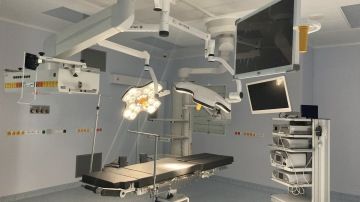
Team of surgeons
Associate Professor
Dr. Barbora East,
PhD, FEBS AWS
Chief of Surgery
More information on the procedure
General or local.
In the evening after the operation, the patient gets out of bed and is given fluids, and on the first day after the operation is given broth. The patient walks freely around the clinic, can take a shower and, if there are no complications, goes home. It is advisable to wear a hernia belt in the first weeks after surgery to support the abdominal wall and assist wound healing. At home, one can gradually switch to a normal diet.
Wounds are dressed and sutures removed one week after surgery. Staying home from work is usually recommended for two to three weeks after surgery, depending on the type of work performed.
Avoiding lifting heavy loads for at least three months is recommended.
Preoperative preparation includes internal preoperative examinations, blood and urine lab tests, and other examinations as necessary. It also includes a summary of previous illnesses, a list of medications being taken, allergies, and an assessment of the risks associated with general anaesthesia.
The patient usually comes in for the planned procedure on the day of the surgery to keep the hospital stay as short as possible. From midnight the night before the operation, the patient must not eat or drink and must avoid smoking and alcohol consumption. If medication is required, the attending physician must be consulted.
Jewellery, contact lenses and dentures must be removed before the procedure. No make-up or nail polish may be worn.
How our clients rate us
Minimally invasive, maximum care
One-day surgery is a concept that involves non-emergency surgical procedures. Its advantage is quick recovery and minimal pre- and post-op stress.
A modern and comfortable environment
Our clinic is designed with your comfort and safety in mind. We combine modern technologies with a friendly environment to make every visit as pleasant as possible. Come explore our premises, which are as enticing as they are functional.
Are you interested in an examination for the procedure?
Contact our clinic.
Client line: +420 222 900 900


